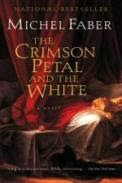(In which I really changed my mind.)
***
 After reading The Flanders Panel by Arturo Pérez-Reverte, it dawned on me that reading mystery is not as uninteresting as I used to think. Now that was a hasty generalization, I know. And to further accentuate my hasty behavior, there was a time when I picked up a book from a tall pile in my favorite bargain store and read the synopsis inside the jacket. The mere fact that it deals with ancient Egypt was enough for me to clutch it really close. After having it covered with plastic, I reread it and discovered it was the sixth and the last book in an Egyptian-inspired series. I was still thankful it wasn’t somewhere in the middle, though.
After reading The Flanders Panel by Arturo Pérez-Reverte, it dawned on me that reading mystery is not as uninteresting as I used to think. Now that was a hasty generalization, I know. And to further accentuate my hasty behavior, there was a time when I picked up a book from a tall pile in my favorite bargain store and read the synopsis inside the jacket. The mere fact that it deals with ancient Egypt was enough for me to clutch it really close. After having it covered with plastic, I reread it and discovered it was the sixth and the last book in an Egyptian-inspired series. I was still thankful it wasn’t somewhere in the middle, though.
Lynda S. Robinson’s Slayer of Gods concludes the Lord Meren series. A concoction of ancient Egypt, detective mystery, murder and heresy, the novel opens up with an annoying, old duck loitering in an elaborate palace of Lord Meren, the Eyes and Ears of Pharaoh Tutankhamen and the determined investigator in search of Queen Nefertiti’s murderer. The duck belongs to Satet, a witness who is killed as she searches for her pet. Satet’s murder starts the series of clues and traces and danger of finding the culprit responsible for the great Queen’s untimely demise more than a decade ago.
If there’s one thing that amazes me with this novel is the old-fashioned ways of tracking a criminal – which nonetheless work. During the time when CSI-like investigations and astonishing forensic science don’t exist, detectives rely on spies, rumors, plain common sense and some chance of luck. And when it comes to squeezing information, instead of the polygraph test there is the confess-before-I-count-to-ten method which works too, however ruthless that sounds. But the ruthlessness doesn’t stop there, of course. For a criminal, once found guilty has only two (because I don’t consider exile a merciless punishment) choices– a slow or quick death.
The novel is filled of lessons about trust, loyalty, the threat of a woman’s charm and the horrifying power of religion. Oh, I could have easily used a biblical allusion had it not been for my dislike of spoilers!
Regardless of the novel being a fragment of a series, it is written well enough to stand alone. The references made in the reigns of the previous pharaohs as well as other events relevant to the present crime do not result to a painfully curious mind or a reader’s disappointment for not being able to read the earlier books. The pace was fast enough but not too hasty to leave gaps in the narration, thus crafting a solid, smooth flow to the conclusion that twisted my heart and made me sigh.
